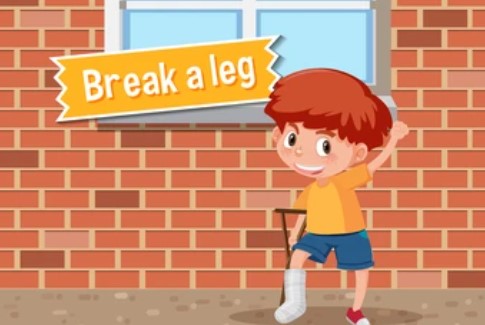Welcome to another post on Revan’s English! Today, we’re diving into the vibrant world of English phrases and idioms, those fascinating expressions that often leave learners scratching their heads, yet ultimately add color and spice to the language.
Idioms are phrases or expressions that have a figurative or sometimes literal meaning. They’re used extensively in every language, including English, and learning them is key to understanding everyday conversations. Let’s explore some common ones!
- The ball is in your court: No, this doesn’t refer to a tennis match. When we say “the ball is in your court,” it means it’s your turn to take action or make the next move. It’s commonly used in conversations where decisions need to be made. For example, “I’ve done all I can, now the ball is in your court.”
- Bite the bullet: This has nothing to do with gnawing on ammunition. To “bite the bullet” means to endure a painful or otherwise unpleasant situation that is seen as unavoidable. It’s akin to saying, “brace yourself.” For instance, “The project deadline is tomorrow, and there’s a lot of work left. We’ll just have to bite the bullet and pull an all-nighter.”
- Cutting corners: No scissors or corners of a room involved here! This idiom means doing something poorly or cheaply to save time or money. It often implies a negative connotation about the quality of the work. E.g., “They cut corners when building the bridge, which is why it has so many problems now.”
- Let the cat out of the bag: Rest assured, no felines are harmed in this idiom. This phrase is used when a secret is revealed, usually unintentionally. An example might be, “I let the cat out of the bag about their surprise party – I didn’t know it was supposed to be a secret!”
- Kick the bucket: Interestingly, this has nothing to do with kicking or buckets. It’s a less formal or slang phrase for dying or death. It’s important to know this idiom, but also to know it’s not typically used in serious or sensitive discussions about death. For example, in a light-hearted conversation, someone might say, “When I kick the bucket, I want all my savings to go to charity.”
- Break a leg: Despite sounding a bit brutal, this is a phrase used to wish someone good luck, especially before a performance. Contrary to the literal meaning, you’re not wishing harm upon someone. In fact, it’s a superstition in the theatre to avoid saying “good luck,” so “break a leg” is used instead!
- Barking up the wrong tree: If you’re accusing someone unjustly or pursuing a line of thought that’s unlikely to yield the results you expect, then you’re “barking up the wrong tree.” It’s akin to a dog barking at the base of an empty tree – the cat (or whatever it was chasing) is no longer there!
- A piece of cake: Have you ever found a task so simple and easy that it required almost no effort on your part? That’s when you’d say it’s “a piece of cake.” This idiom is a delightful way to describe something that’s easy to accomplish.
- Spill the beans: If you’re not careful, you might “spill the beans,” meaning, reveal a secret or hidden information unintentionally. So, if you want to keep a secret, ensure you don’t spill those metaphorical beans!
- Hit the books: This phrase doesn’t involve any physical violence against books! If you’re “hitting the books,” you’re studying hard, often for an upcoming exam or test.
- Bite off more than you can chew: When you take on a task or responsibility that is beyond your capability, you’ve “bitten off more than you can chew.” Like trying to eat a huge bite of a sandwich, only to find you can’t manage it, this idiom warns against overcommitting or overextending oneself.
- Put all your eggs in one basket: This cautionary idiom means to risk everything on a single opportunity or event. It’s a reminder to diversify your resources and not rely too heavily on one thing for success.
- Bent out of shape: If you’re getting overly upset or worried about something, you’re “bent out of shape.” Just imagine a piece of metal being bent – it’s not in its natural relaxed state!
- Costs an arm and a leg: When something is very expensive, you could say it “costs an arm and a leg.” But don’t worry, no actual limbs are sacrificed in the process!
- Once in a blue moon: This poetic idiom describes an event that happens very rarely. A “blue moon” is the term for a second full moon in a single calendar month, which is a relatively rare occurrence, hence the expression!
Remember, idioms are an integral part of English, and understanding them will help you make sense of conversations, books, movies, and more. Don’t be discouraged if you don’t understand them all at once – it’s a learning process, and you’re doing great!
Stay tuned for our next post where we’ll explore more English idioms. If you have any specific phrases you’d like us to explain, please leave a comment below. Happy learning, everyone!
